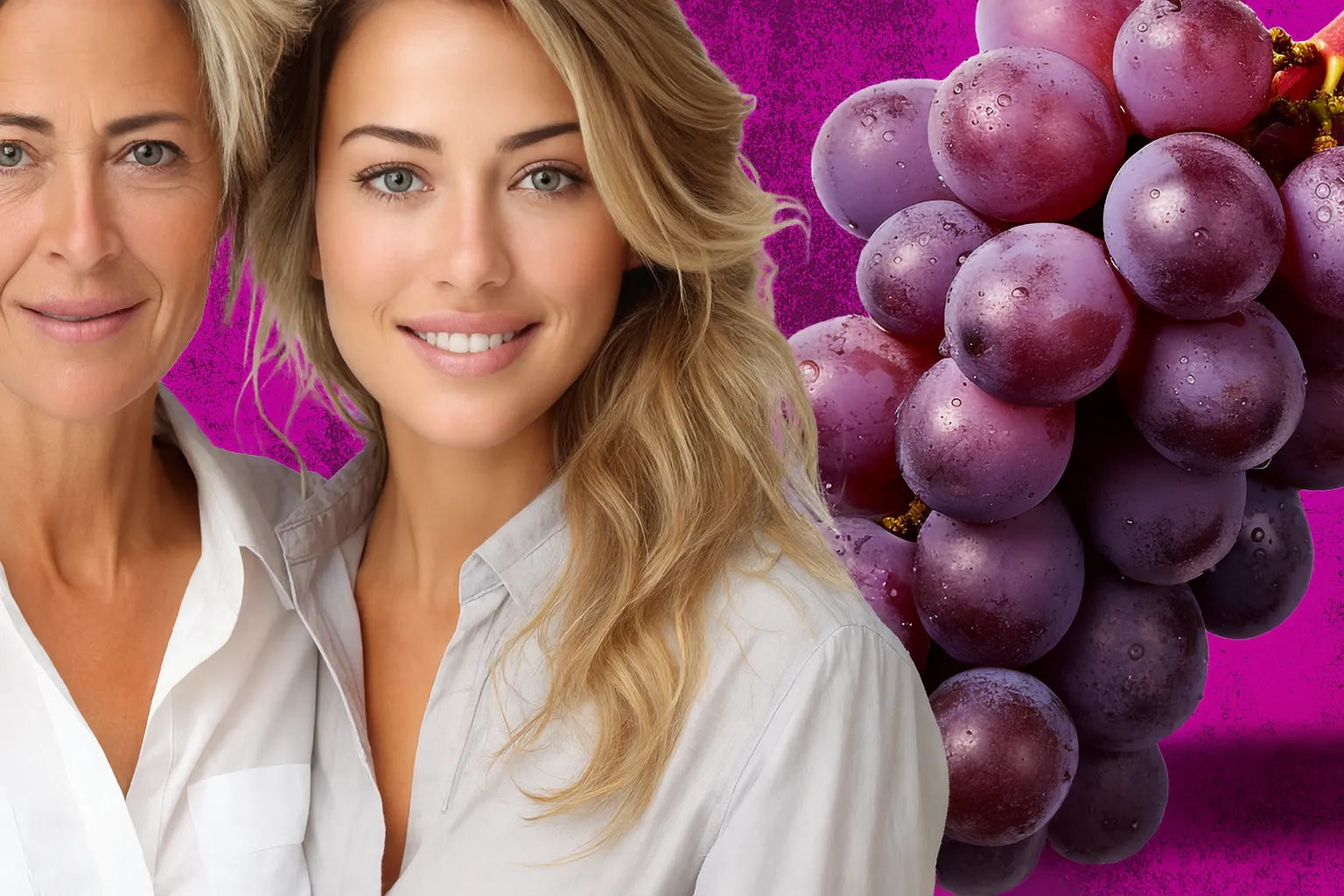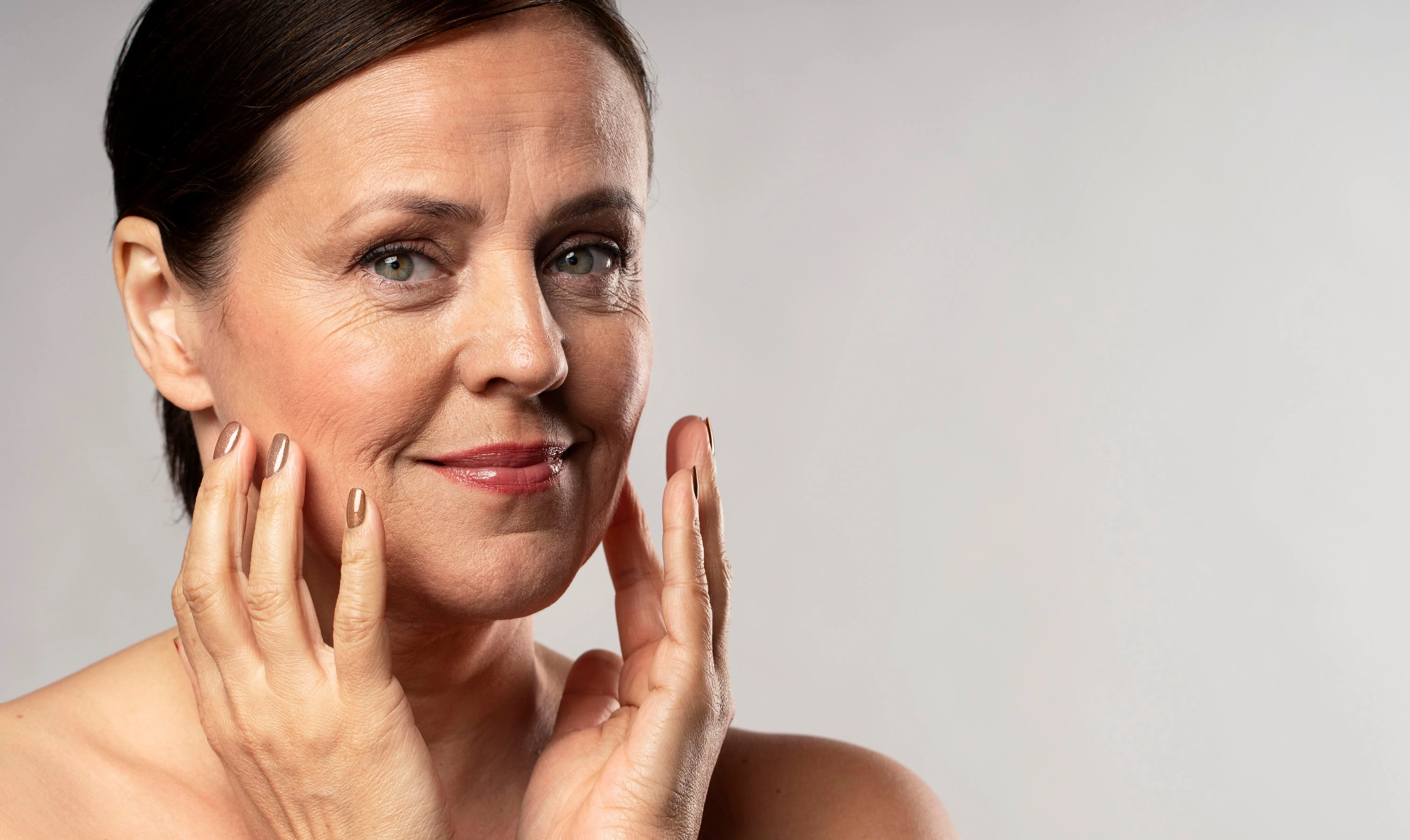
Did you know that a compound found in grape skin could be the key to combating aging, improving cardiovascular health, and protecting our brain? Today we will explore the fascinating world of resveratrol, the natural antioxidant that is making headlines. If you want to learn surprising facts and things no one has told you yet about resveratrol, keep watching this incredible video until the end. You won't regret it.
But wait! Remember to balance your diet along with good exercise practices, for this, we recommend our Pura+ products, which will help you lead a much healthier life.
Today at Pura+, the RESVERATROL
Etymology and Synonyms:
The term resveratrol comes from the Latin 'resina' and 'veratrina', as it was initially discovered in the root of a medicinal plant.
Res: Comes from the name of the compound's precursor, resorcinol, a type of simple phenol that is part of the chemical structure of resveratrol.
Veratrol: Refers to the derivative of veratrol, another chemical compound related to phenols and used as a base in the scientific nomenclature for this type of molecules.
Ol: It is a common suffix in organic chemistry that indicates the presence of a hydroxyl group (-OH), characteristic of alcohols.
The term "resveratrol" was coined in the scientific context from its identification and characterization in the extract of the roots of Veratrum grandiflorum, a plant where the compound was initially found. Since then, it has been used to describe this natural polyphenol, also present in other plants like grapes, blackberries, and peanuts.
It is also known as a 'stilbene polyphenol' due to its chemical structure. Sometimes it is called 'the elixir of youth' or simply 'the red wine antioxidant'

History and Origins:
Resveratrol was discovered in 1939 by Japanese chemist Michio Takaoka, who isolated it from Veratrum album, a plant used in traditional Chinese medicine. Although it was initially studied for its antimicrobial properties in plants, its potential for human health was not evident until decades later when it was found in grape skins and red wine."
In the 1990s, it became famous thanks to the 'French paradox', a phenomenon that intrigued scientists: how could the French consume a diet rich in fats and maintain low rates of cardiovascular disease? A possible answer was in their consumption of red wine, which contains resveratrol. But resveratrol is not only present in wine. It is also a secret of the blue zones, such as Okinawa and Sardinia, regions known for their high centenarian population. In these communities, resveratrol is part of a diet rich in antioxidant and anti-inflammatory compounds, which seem to slow down aging, after all, taking Resveratrol is almost like drinking 200 glasses of wine! So it's much better since it has fewer negative side effects.
Today, resveratrol has become trendy since practically all influencers have followed the advice of the famous Australian biologist and Harvard University academic, David Sinclair, named one of the 100 most influential people by Time magazine. Among these influencers who have mentioned Resveratrol as a source of eternal youth, we can easily highlight the eminence Frank Suarez, the famous Doctor La Rosa, the popular Carlos Jaramillo, and the Mexican nutritionist Nathaly Marcus.
Uses and Benefits:
This compound has multiple benefits. It is a powerful antioxidant that protects our cells from damage caused by free radicals, helping to prevent premature aging. It also improves cardiovascular health by reducing inflammation in blood vessels and balancing cholesterol levels. Additionally, its ability to protect the brain, reduce the risk of diseases like Alzheimer's, and improve insulin sensitivity has been studied.
Moreover, resveratrol has attracted the attention of scientists for its ability to activate sirtuins, a group of proteins that play a key role in cellular regulation and longevity. These proteins act as guardians of cellular health, helping to repair damaged DNA, regulate energy metabolism, and combat oxidative stress.
The most effective source of Resveratrol is the plant called Poligunum Cuspidatum, whose extract can reach up to 50% presence of resveratrol. Other grapes or plants only reach between 5 and 15% at best.
The maximum effect of resveratrol as a true anti-aging source is achieved when combined with NAD precursors or nicotinamide adenine dinucleotide as it is known in English. These precursors are NMN, which has proven to be the most effective, but not yet approved by the American FDA, and NR, less effective but readily available in the supplement market. We will tell you all the most effective combinations in a future video.
Despite limited studies in humans, results to date are very promising in animal models. Research from Harvard Medical School suggests that resveratrol activates a protein that promotes health and longevity in animal models, indicating that resveratrol could combat aging-related diseases in humans. Furthermore, some clinical studies have examined the effects of resveratrol on cardiovascular health, cognitive function, and insulin sensitivity. For example, a study in middle-aged adults found that resveratrol supplementation improved key markers of cardiovascular health, such as reducing blood pressure and improving cholesterol levels.
Contraindications and Precautions:
But, like everything, resveratrol is not perfect. Be very careful with counterfeits or dubious quality products. Here we explain how to detect it:
And although Resveratrol has many benefits, it has one big flaw, it has limited bioavailability, so the body does not absorb it optimally. Resveratrol is not water-soluble and only partially dissolves in the presence of fat and almost completely in the presence of alcohol, so we give you these fundamental tips:
Finally, we tell you a little-known secret. There is another supplement with characteristics similar to resveratrol but with much more effective bioavailability. It is the active ingredient of blueberries called pterostilbene, and that is why it is called resveratrol's younger brother. Let us know if you want us to tell you more about this other unknown but fantastic longevity supplement that will soon make all the experts talk.
Conclusions and Reflections:
In conclusion, resveratrol is a clear example of how natural compounds can have a positive impact on our health. However, it is not a miraculous remedy, and its effectiveness depends on a balanced lifestyle. If you decide to include it in your routine with supplements, do it in an informed way. And remember: a good trans-resveratrol supplement could be much better than a glass of wine.
The brands Beybies, Pura+ and NrgyBlast belong to Avimex de Colombia SAS. All products have quality certifications and valid health registrations and are manufactured under the strictest international standards. To purchase our products, you can access our Shop-Online. All purchases are backed by a 100% satisfaction or refund guarantee.